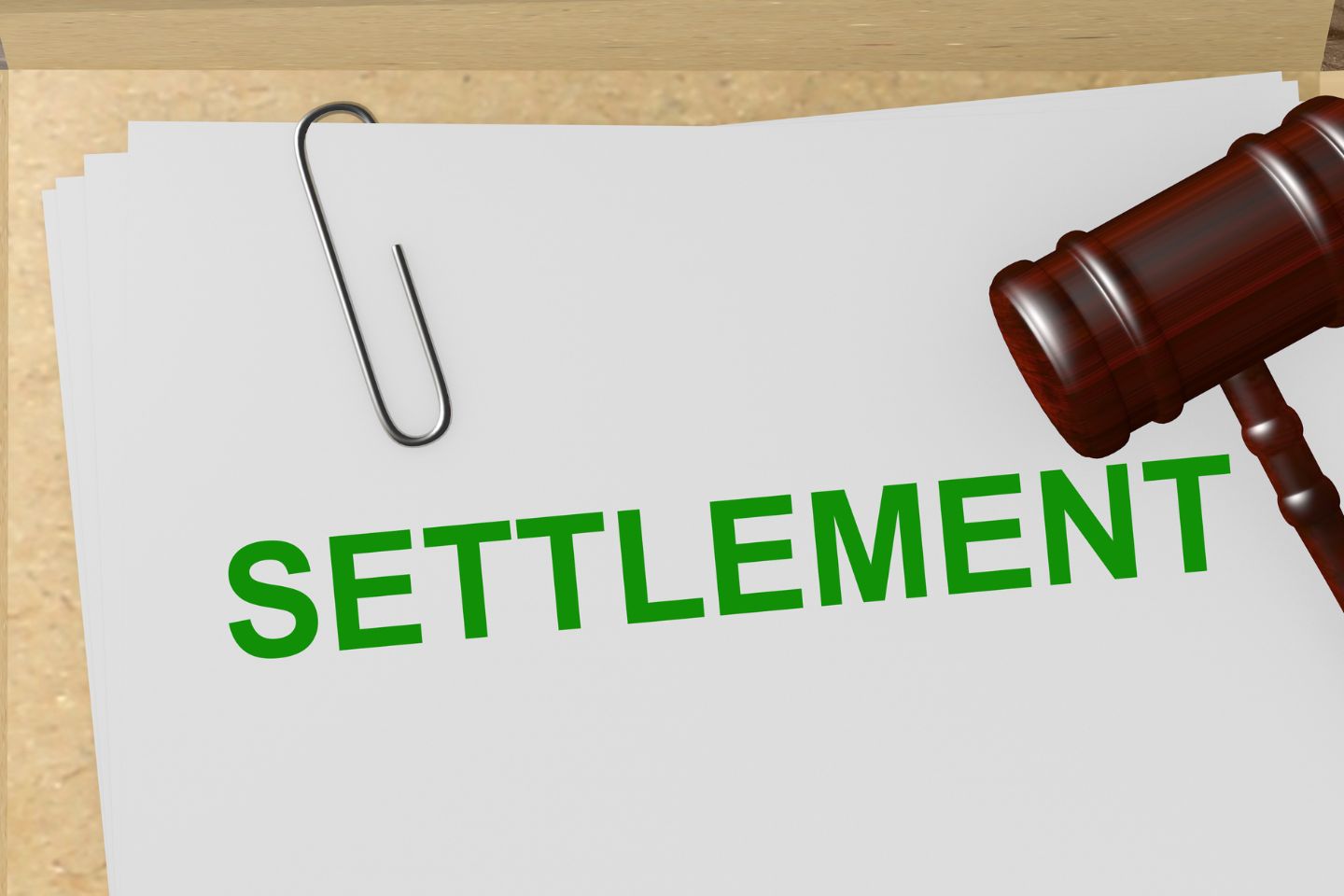The personal injury law has a pivotal aspect; permanent injury settlement amounts. This means that if a person has been injured, they may be entitled to compensation from the at-fault individual(s). The severity of injury, its impact on the life of the victim, and their legal representation are some of the factors that affect the settlement amount.
It is important that victims of someone else’s negligence understand that permanent injury settlements are designed to provide financial compensation which is intended to cover medical expenses, lost wages, and other damages related to the injury. It is essential to understand the legal process for obtaining a settlement and the factors that can impact the amount received.
The process of calculating permanent injury settlement amounts can be complex as it involves assessing the severity and impact of the injury, and the legal representation they have. The settlement amount may also be affected by state-specific laws and regulations,
Victims must seek help from an apt personal injury attorney to navigate the legal process and maximize the settlement amount.
Understanding Permanent Injury Settlements
If a person has been harmed as a result of another party’s negligence then, they may be entitled to compensation; personal injury settlements. Permanent injury settlement amounts can vary widely depending on a number of factors, including the type of injury, the severity of the injury, and the role of negligence in the injury.


Types of Permanent Injuries
Personal injuries can be of different types, their effects on the victim’s life can vary and can result in different types of compensation as well. Some of the injuries include loss of limb, paralysis, traumatic brain injury, and chronic pain. For example, a victim who has lost a limb may be entitled to compensation for the cost of a prosthetic limb, while a victim with chronic pain may be entitled to compensation for ongoing medical treatment.
Factors Influencing Settlement Amounts
As mentioned above, there are various factors that influence the compensation amount a victim receives for a permanent injury settlement. These factors mainly include:
the acuteness of injury,
the age and occupation of victim,
how has the injury affected the victim’s quality of life.
In addition to that, the intensity of negligence in the injury can also play a significant role in determining the settlement amount.
Role of Negligence in Settlements
Negligence is a crucial factor in determining the amount of compensation a victim receives for a permanent injury settlement. For instance, if the injury was caused by a drunk driver then the victim may be entitled to compensation for medical expenses, lost wages, and pain and suffering.
However, if the victim was partially at fault for the injury, their settlement amount may be reduced.
In conclusion, personal injury settlements depend on certain factors which can influence the amount of compensation a victim receives. This can be a complicated process which is why it is important to have a clear understanding of these factors, including the types of injuries that can result in settlements, and the role of negligence in settlements.
Calculating Settlement Amounts
While calculating permanent injury settlement amounts, factors such as economic damages, non-economic damages, and punitive damages are taken into consideration.
Economic Damages
This means the financial loss a victim incurs because of their injury. This includes medical bills, lost wages, and other out-of-pocket expenses. Economic damages are relatively easy to calculate, as they involve adding up all of the victim’s expenses related to their injury.
Non-Economic Damages
Non-economic damages refer to the intangible losses that a victim has suffered as a result of their injury. This includes pain and suffering, emotional distress, and loss of enjoyment of life. Unlike economic damages, non-economic damages are more difficult to calculate, as they do not have a specific monetary value.
To calculate non-economic damages,
Punitive Damages
Punitive damages are awarded in cases where the defendant’s conduct was particularly egregious or reckless. These damages are meant to punish the defendant and deter them from engaging in similar conduct in the future.
In order to be awarded punitive damages, the victim must prove that the defendant acted with malice, fraud, oppression, or gross negligence. The amount of punitive damages awarded varies depending on the severity of the defendant’s conduct and the harm caused to the victim.
Overall, calculating permanent injury settlement amounts is a complex process that involves taking into consideration a variety of factors. It is important for victims to work with experienced lawyers and
Legal Process and Representation
Filing a claim for permanent injury settlement can be a complicated situation but things can get smooth with the help of qualified and experienced legal representative.


Finding the Right Attorney
To fight for your rights, you should find a skilful attorney. A seasoned attorney will handle and carry out the legal procedures well and ensure your success in a permanent injury settlement case. The victim should look for an attorney who has experience negotiating settlements and taking cases to trial.
The Settlement Negotiation Process
The settlement negotiation process is a critical part and it is essential to have an experienced attorney who can handle the negotiation process. The victim’s attorney will negotiate with the
Litigation and Trial
If the settlement negotiation process is unsuccessful, the case may go to trial. In this case, the victim’s attorney will present the evidence in court, and a judge or jury will decide the outcome of the case.
Going to trial can be a lengthy and expensive process, and it is essential to have an experienced attorney who can handle the trial process. The attorney will present the evidence and argue the case on behalf of the victim, and will work to ensure that the victim receives fair compensation for their injuries.
In conclusion, when dealing with a permanent injury settlement, it is essential to have proper legal representation. The victim should find an experienced attorney who can handle the negotiation process and, if necessary, take the case to trial. With the right attorney, the victim can receive fair compensation for their injuries.
Case Studies and Precedents
Historical Settlement Amounts
Permanent injury settlement amounts are determined based on various factors such as the severity of the injury, the impact on the victim’s life, and the degree of negligence of the responsible party. Historical data shows that in the past, permanent injury settlements were relatively low and did not always fully compensate the victim for their losses. However, recent trends suggest that the amounts awarded for permanent injuries have increased significantly.
For example, in the landmark case of Bonds v. Republic of Kenya, the plaintiff was awarded $20 million for a permanent injury sustained in a terrorist attack. The plaintiff suffered severe burns and lost the use of his legs. The court found that the defendant was negligent in failing to provide adequate security at the hotel where the attack occurred. This case set a precedent for high-value settlements for permanent injuries caused by negligence.
Recent Trends in Settlements
In recent years, increased awareness of the impact of permanent injuries and the need to provide adequate compensation are the main reasons for a surge in trend towards higher settlement amounts for permanent injuries. Moreover, there has been an increase in the accountability processes which has resulted in higher settlements for permanent injuries caused by negligence.
The example of a woman who was awarded $12 million for a permanent injury sustained because of the driver driving under the influence in California gained significant attention. The plaintiff suffered a traumatic brain injury and was left with permanent cognitive impairment. The court found that the defendant was negligent in driving under the influence and failing to exercise reasonable care while on the road.
Overall, the trend towards higher permanent injury settlement amounts reflects a growing recognition of the impact of these injuries on the victim’s quality of life. It also highlights the need for responsible parties to be held accountable for their actions.
Impact of Permanent Injuries
Anyone suffering from a permanent injury witnesses notable effects on their quality of life, both financially and emotionally. In this section, we discuss how injuries can result in long-term financial considerations and earning capacity issues
Long-Term Financial Considerations
Permanent injuries can result in significant medical expenses, including ongoing treatment and rehabilitation costs. These expenses can add up quickly, and in some cases, they can be ongoing for the rest of a person’s life. In addition to medical expenses, permanent injuries can also result in lost income, which can be a significant financial burden for many individuals and families.
Quality of Life Changes
Permanent injuries can also result in significant changes to a person’s quality of life. For example, a person with a permanent injury may no longer be able to participate in certain activities or hobbies that they enjoyed before the injury. They may also experience physical pain or discomfort, which can impact their overall well-being and mental health.
Employment and Earning Capacity
Permanent injuries can also impact a person’s ability to work and earn a living. Depending on the severity of the injury, a person may no longer be able to perform the same job they did before the injury. This can result in a loss of income, as well as a loss of career opportunities and advancement.
Overall, permanent injuries can have a significant impact on a person’s life. From financial considerations to quality of life changes and employment issues, these injuries can be life-altering. When it comes to permanent injury settlement amounts, it’s important to consider all of these factors and work with an experienced attorney to ensure that you receive the compensation you deserve.
Insurance Considerations
When dealing with a permanent injury settlement, there are a few things to consider when it comes to
Dealing with Insurance Companies
Insurance companies are not on your side. They are businesses that are looking to make a profit. As a result, they will try to pay out as little as possible in a settlement.
It is important to be prepared when dealing with
Insurance Policy Limits
Another important consideration when dealing with
In some cases, the plaintiff may be able to go after the defendant’s personal assets if the damages exceed the policy limit. However, this is not always possible. It is important to consult with an attorney to determine the best course of action.
Overall, dealing with
State-Specific Laws and Regulations
Variations in State Laws
When it comes to permanent injury settlement amounts, it is important to understand that state laws and regulations can vary significantly. Each state has its own set of laws and regulations that govern personal injury cases, including settlements for permanent injuries. Some states have no-fault laws, while others follow a traditional fault-based system.


In states with no-fault laws, injured parties are generally required to seek compensation from their own
Additionally, some states have caps on the amount of damages that can be awarded in personal injury cases, including those involving permanent injuries. These caps can vary widely from state to state, and can have a significant impact on the amount of compensation that an injured party can receive.
Statute of Limitations
Another important consideration when it comes to permanent injury settlements is the statute of limitations in each state. The statute of limitations is the time limit within which an injured party must file a lawsuit in order to seek compensation for their injuries.
In some states, the statute of limitations for personal injury cases is as short as one year, while in others it can be as long as six years. It is important to be aware of the statute of limitations in your state, as failing to file a lawsuit within the allotted time frame can result in the forfeiture of your right to seek compensation.
In conclusion, understanding state-specific laws and regulations is crucial when it comes to permanent injury settlement amounts. It is important to work with an experienced personal injury attorney who is familiar with the laws and regulations in your state in order to ensure that you receive the compensation that you deserve.
Settlement Strategies and Tips
Those who intend to pursue a personal injury settlement for a permanent injury, must have a clear strategy and follow the below mentioned tips to maximize the settlement amount.


Maximizing Your Settlement
To maximize your settlement, it’s important to have a clear understanding of the value of your case. This includes not only the medical costs associated with your injury, but also the impact it has had on your daily life, ability to work, and emotional well-being. Keep detailed records of all expenses related to your injury, including medical bills, lost wages, and rehabilitation costs.
It’s also important to have a strong negotiating position. This can be achieved by having a skilled attorney on your side who can present a compelling case to the
Avoiding Common Pitfalls
At times,
When plaintiffs do not have accurate understanding of their injury and proper legal assistance, they undervalue their case hence, receive an unfair compensation amount. It is important to \work with an attorney who can accurately assess the value of your case and negotiate on your behalf.
Despite the fact that pursuing a personal injury settlement for a permanent injury can be a challenging process, a thoroughly designed strategy can help avoid pitfalls and obtain fair compensation.
Key Takeaways
|
Frequently Asked Questions
What factors influence the value of a car accident injury settlement?
Several factors can influence the value of a car accident injury settlement, including the severity of the injury, the cost of medical treatment, and the extent of property damage. Other factors that may affect the settlement amount include lost wages, pain and suffering, and emotional distress.
How are emotional distress damages calculated in personal injury cases?
Calculating emotional distress damages can be challenging, as there is no set formula for determining their value. In general, damages for emotional distress are awarded based on the severity of the emotional trauma suffered by the injured party. Factors that may be considered when calculating emotional distress damages include the nature of the injury, the duration of the emotional trauma, and the impact the injury has had on the injured party’s life.
What are common compensation ranges for back injuries that don’t require surgery?
The compensation range for back injuries that don’t require surgery can vary widely depending on the severity of the injury and the impact it has had on the injured party’s life. In general, compensation for back injuries may include medical expenses, lost wages, and pain and suffering. Settlements for back injuries that don’t require surgery can range from $10,000 to $50,000.
How is the permanent injury benefit determined in settlement cases?
The permanent injury benefit is typically determined by the severity of the injury and the impact it has had on the injured party’s life.
What constitutes pain and suffering in a personal injury lawsuit?
Pain and suffering in a personal injury lawsuit generally refers to the physical and emotional distress that the injured party has experienced as a result of the injury. This can include physical pain, emotional trauma, and mental anguish. Pain and suffering damages are typically awarded in addition to compensation for medical expenses and lost wages.
What guidelines can help determine a reasonable figure for personal injury settlements?
There is no set formula for determining a reasonable figure for personal injury settlements, as each case is unique. However,
If you or your loved one has been suffering from a permanent injury because of someone’s negligence then, do not lose hope. Take action and stand up for your rights as The Personal Injury Centre can connect with you a specialized network of attorneys who will represent you and pave the way for the fair amount of compensation you deserve. Contact us on the toll free number 1-800-846-23-21 and let’s sort your problem!



